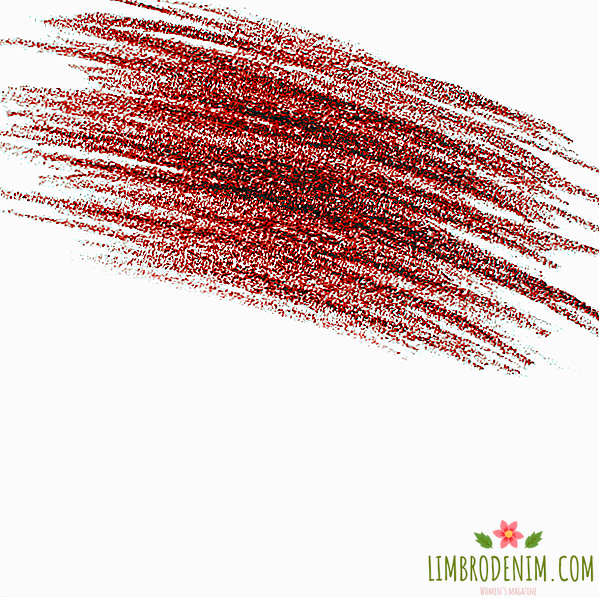Artist and curator Olga Shirokostup about favorite books
IN BACKGROUND "BOOK SHELF" we ask journalists, writers, scholars, curators, and not only about their literary preferences and publications, which occupy an important place in their bookcase. Today, Olga Shirokostup, an artist, art manager, coordinator of the Field Research project of the MSI Garage and curator of the SCWT program of the Polytechnic Museum, shares her favorite book stories.

As a child I didn’t really like to read, the love of reading was formed rather late - as a teenager. I spent school holidays in a small town in the Rostov region. Grandparents had a large library. But I was especially interested in the bookcase of my uncle - there I found the first book, which hooked me terribly. It was the "Solaris" of Stanislav Lem. Then I re-read all Bulgakov (“The Masters and Margarita” I mastered, it seems, for a couple of sleepless nights), Soviet science fiction. I was interested in archeology, history, in high school I was engaged in the "Club of Young Art Critics" at the Pushkin Museum. Perhaps it was the books on the art of the ancient world prompted me to the idea that I want to work in the museum in the future. I am convinced that the most important quality that we develop in childhood and should not lose is curiosity. This is almost a professional quality - without him in our business in any way. All the books that I liked, I always wanted to quickly give someone to read. I began to praise the book, then gave it away and forgot who. Generally, strictly speaking, I don’t and cannot have any “bookshelf”. For a long time I lived on suitcases, constantly changing my place of residence, and did not allow myself to grow into things. Books adopt habits of their owners. My books are stored in the workshop, at work - wherever necessary. I easily acquire them and easily part with them, but behind each one I always see the person who influenced me. This memory warms, makes my reading experience truly valuable. Building a library is such a beautiful, but utopian project. With my lifestyle this is not yet possible.

I easily acquire books and easily part with them, but behind each one I always see the person who influenced me.

I love essays, short stories, small form and modern poetry. I love Eastern European literature, especially Vitold Gombrovich, Bogumil Hrabal. I read fragmentary, several books at the same time and often leave books for a long time unread, and then return to them. For work, I am usually interested in several topics in parallel - for example, this year I worked on projects about Arabic and African cinema, about the American National Exhibition in Moscow in 1959 and Russian cosmism. I was lucky: at work I communicate with the most interesting people, major experts in their fields, enthusiasts. They advise me of the book and send me in search of this or that information.
I really like going to libraries: in the silence of the reading rooms it is easy to concentrate and enjoy working. A wonderful library works at the Garage Museum - lately I go there regularly for professional literature.

"Notes of a Rebel"
Albert Camus
I bought this book when I was about fifteen, because I just liked the man on the cover. Then I did not even know who Camus was. His thin and caustic notes about love, freedom, death, the absurdity unusually accurately resonated with the teenage languishing state of mind. So many years have passed, and I continue to refer to the "Notes" again and again. The photo is a later edition - but I could not bring this book, but "that Camus" remained with someone of my friends.

Magazines "Translit", "Political Criticism", "Return the Future": Almanac of Staff 1
I love magazines so much - thick, smart, with criticism and about art, about politics, with poems, zines, etc. They are easy to carry with me, and I usually read on the go. In the city - from work / to work in the subway, in trains and airplanes. The road is an ideal state for reading.

"The Clash of Civilizations. Crusades, Jihad and Modernity"
Tariq Ali
The history of Islam through centuries, wars, triumph and tragedy, outstanding and ordinary people is read more fascinating than any historical novel. Add to this a stunning analysis of the topic, depth and clarity of presentation. Levak, an activist, a wonderful researcher, with a terrific biography, Tarik Ali deserves a more detailed comment than I can give in this short general overview format. I advise you to read to everyone, regardless of the awareness and interest in this matter (you are definitely interested in them) - the book deserves it.

"Cinema of hostilities"
Mikhail Trofimenkov
The book "The Cinema of Military Action" is a real encyclopedia of political cinema and not only - I was advised by the director and researcher from St. Petersburg Alexander Markov. I thought now that I probably enjoy reading about the cinema, more than watching the film adaptation.

"The CIA and the Art World. The Cultural Front of the Cold War"
Frances Stonor Saunders
This is a book about the influence of the CIA on US cultural policy during the Cold War. In the book, many interesting facts - from it you will learn why abstract expressionism was the "secret weapon" of the States, and Pollock, in particular, promoted and financed the CIA. This book was recommended to me by an Americanist, Professor of the RSUH, Victoria Zhuravleva.

"Plot Culture"
Peter Knight
The conspiracy culture was advised to me by my friend, the historian Ilya Budraitskis, when we worked on his joint project “Shadow of Doubt” with Masha Chekhonadsky last year. Then I plunged into the study of conspiracy theories, took her to read and did not return. To my shame, I often do this with other people's books. I find it funny, because Illya sees and recognizes her, but I think he will be touched.

"Mitin magazine"
Mitin Magazine is not just a few rare texts under one cover, but a real treasure. About the existence of how many writers I learned through the publishing house Kolonna Publications! They release all the weirdest things I've read. Somehow I ordered books directly from Tver (this is a special pleasure). You receive a parcel neatly wrapped in craft, in addition to books they put magnets and postcards into it. Everything that the "Column" does is very cool, really.

"The New Jim Crow"
Michelle Alexander
The leader of the Moscow orchestra playing New Orleans street jazz, Misha Griboyedov, often advises me to good books about American culture and politics. In particular, this: the book of the American lawyer and human rights activist Michelle Alexander explores how the institutional machine of oppression works from the Reagan presidency to the present day. In the 1980s, in the wake of the fight against drugs, the percentage of African American prisoners in prisons increased - according to Alexander, this social pressure on the black population was a response to the rise of the civil rights movement in the United States. Conclusion: the only way to fight racist laws is solidarity and the struggle for their rights. Very correct book, I advise everyone. There are many parallels with the rampant police violence in our country in a situation when society is silent.

"Aesthetics performance"
Erica Fisher-Lichte
I read this book at the insistence of Katie Chukhrov. We work together a lot, this summer we conducted the “Workshop of Poetic Action” - I always listen to its recommendations, they mean a lot to me. I am interested in theater and performance and read the book by Fisher-Lichte in parallel with the other participants of the workshop (it was in our reading list), and then we had discussions and argued. I chose this book for the announcement just because I read it with the staff - it was very cool.

"Marx's„ Capital “for Beginners"
David Smith, Phil Evans
"Capital" in pictures, in a comic format, also donated by a friend. I laughed that this book is intended for agitation among the smallest. I like how simple this book is made, the material is easy to submit. A touching example of how to politicize and learn to think critically is as early as possible, and good books teach us just that.






